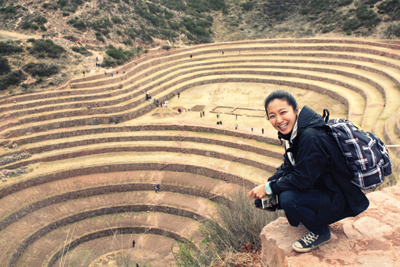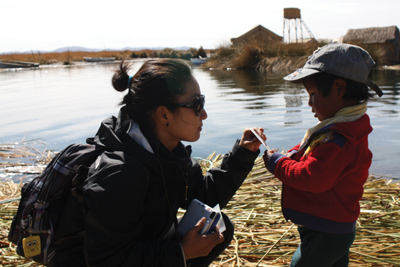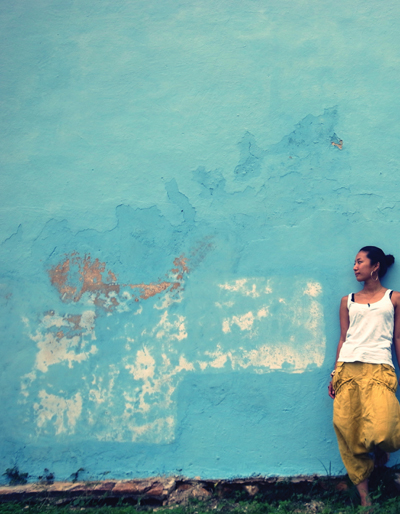
In 2006, Woo began to study for the state bar exam dreaming to become an international lawyer. She studied 16 hours a day for two and a half years at her small room, struggling with legal text books.
“Whenever I grew tired of studying, I stared at a world map right above my desk and imagined myself travelling abroad after passing the state bar exam,” Woo said.
After passing the bar exam in 2008, some people tried to persuade her to enter the JRTI right away, instead of travelling abroad.
“I knew I had to compete more intensely if I wanted to enter the JRTI in March 2011 because of competition with law school graduates. But I thought that time was also the last chance for me to travel and experience this world directly,” Woo said.

To earn money for the trip, Woo did many of part time jobs, including working as a part time bartender in Itaewon. Working day and night, she saved 20 million won. Woo left Korea in January 2010 with money she saved and 10 million won loan from bank. She returned last December.
Woo was surprised during the travel to experience real scenes that she previously had only seen on television. In Lebanon, she met a female university student who, because of her religion, could not travel or study abroad without a male’s permission or male companion despite her intelligence.
In Tunisia, however, Woo saw the softer side of Islam from the young generation there, breaking her bias on Islam culture.

“I heard from a man at the bar that some men there take care of the house before the wife comes home late at night. Also, the young generation was quite fond of drinking, different from what I thought,” Woo said.
Africa was where she witnessed situations of extreme poverty. In Ethiopia, Woo was shocked when she saw children with distended bellies who learned how to speak English by learning the word ‘money’ first due to their poverty and need for food. Also, they drank grey-colored water in a plastic bottle.
“But I learned that giving money or shoes for them was not helpful since the children could decide to only beg to tourists as their job,” Woo said.
In South America, Woo was impressed by South Americans’ embracing spirit and friendliness toward foreigners. Colombians taught salsa dancing to total strangers in the streets.
One of the most dangerous moments was when some men in Tunisia flirted with her, despite her reluctance to interact with them.
“I realized that they thought of me as a “sexually open” woman, as Koreans often think foreigners would be more sexually open than native Koreans,” Woo said.
Currently, Woo is busy studying legal documents at the JRTI. After graduating from the JRTI, she plans to study international law in order to enter an international organization.
“Before travelling, when I saw scenes of war or starvation on television, I felt sad but I felt fine when I turned off the television. But now, as a true witness of all those scenes, I really want help them with what I can do,” Woo said.
Yang Su-bin
subinyang@ewhain.net

